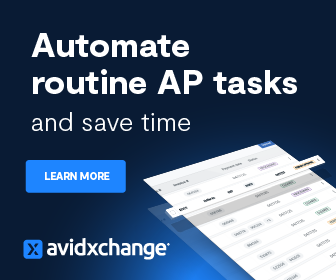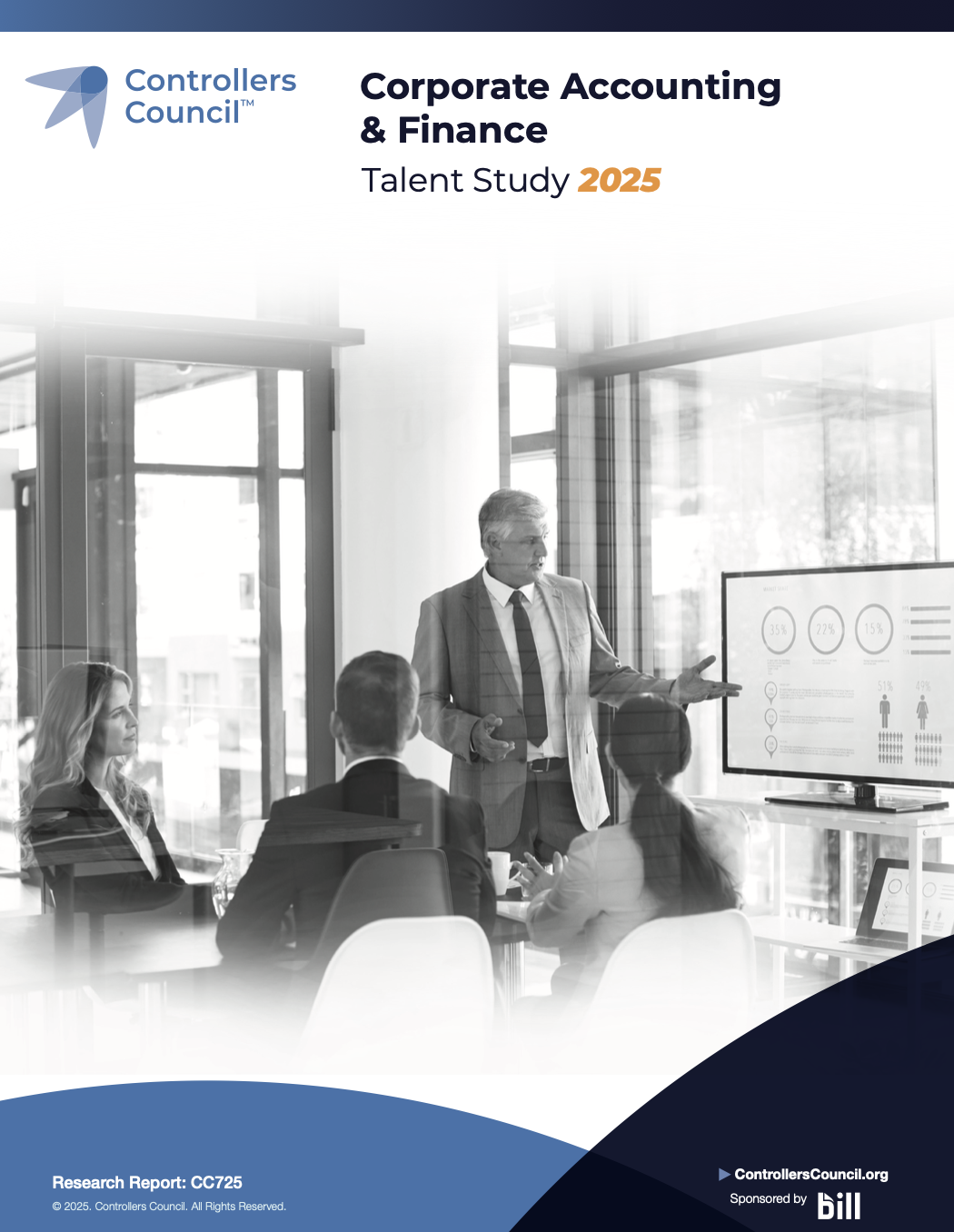Controllers Council and Trintech’s recent roundtable webcast discussion sparked a lively conversation around the evolving role of Controllers and CFOs and the growing importance of technology, including automating back office systems. The discussion, featuring top finance leaders from Trintech (Omar Choucair, CFO and James Walker, Controller), and Ted Weitzel, CFO and Controllers Council Board Director, stemmed from the results of the Controllers Council recent benchmark study, The Digital Controller/CFO, sponsored by Trintech.

One of the first questions tackled the increasing role that CFOs and Controllers play in corporate technology, with 73% of study respondents saying that they are increasing their role in corporate technology. Ted Weitzel offered his thoughts:
Ted Weitzel:
I’m not surprised at all. Especially in my time [as CFO] at G2, the amount of technology that I was overseeing, included the entire IT function as well as security and legal. You’ll see that a lot of this back office is pivoting towards finance and the CFO function than in the past. Especially in my time now as a CFO contract controller – the expectation is that I am coming with my own finance tech stack. And sometimes that tech stack goes beyond finance even, it’s, what are we going to do about collaboration? What are we going to do about our cloud infrastructure? It is interesting to see how much the finance community is being leaned on for some of these traditional IT, what some would say as an IT function in the past.
For Trintech’s James “JJ” Walker, one of the more surprising results from the study stemmed from only 35% of respondents mentioning that they have implemented financial planning and analysis tools:
James “JJ” Walker:
I’m actually a little surprised that only about a third of the respondents said they’re using financial planning and analysis tools and even less using some of the other software, given the last 18 months we’ve all been through, the need for financial planning and analysis and information increased from a monthly cadence to weekly or even daily, in some regards. Fortunately, here at Trintech, we have our own financial close solution we use. We were using that before the pandemic and our solution helps accelerate the close and helps reduce the number of errors that occur. And since we’re all human, everyone makes mistakes, but we’re able to find errors quickly and efficiently to keep the close moving on. And if you’re using a financial close automation solution, it helps you feel more comfortable the numbers are accurate and allows things like exceptions and better business data to be analyzed quicker versus having to worry about the validity of the data. So, for some of these folks that haven’t looked at some of these solutions, I’d definitely highly recommend it. There’s a lot of easy wins to be had.
As the discussion shifted towards the growing need for financial automation, Trintech CFO Omar Choucair shared his insights on what he believed to be the most compelling reasons for Controllers and CFOs to invest in accounting and finance automation.
Omar Choucair:
If there’s one thing that Controllers and CFOs need to really focus on is having accurate financial information and speed is important. If you go back 12 to 14 months ago, everybody was in a different mode of operation, whether it was liquidity, whether it was customer issues, whether it was bank compliance – all these items were hitting the Office of the CFO and the Controller. And I’m sure all of you can remember back 12 months ago, and we’re happy that we’ve put 12 months in between us, but that just shined a spotlight on the need for speed and accuracy. If companies have not automated those mundane tasks, then you are behind. And if you’re behind, you struggle with both speed and accuracy. So, what we’ve seen in our business and what we’ve seen with our customers is, streamline inefficient manual processes first and there’s tools and processes in place to help companies do that. In our mind, that’s really, really important.
The second piece that comes on top of that is the fact that everybody went to a hybrid work environment. So that created more stress on the Office of CFO and Controller. And then the third thing that’s happening is the talent war, and the fact that it’s so difficult to retain your top talent, that you really have to have controls and processes and flowcharts because when those key talent members leave, you have to have software and you have to have processes in place to ensure you don’t have a hiccup and a gap when you’re out searching for that next person. So, there’s a lot to unpack, but those are really the things that we’re focused on with our customers.
The title of the study, The Digital Controller/CFO, also sparked a conversation about how digital transformation is impacting the role of the CFO/Controller. Each panel member was asked if they thought the title of the study fit with the mentality of CFOs and Controllers?
Ted Weitzel:
I think the title is apt, very apt. The number one skill that I think CFOs, Controllers and accountants are going to have to come up with is how do they enable tech? How do they implement tech? How do they improve their use of technology in their roles? It’s amazing what tools are out there and what companies are beginning to provide people in our seats with and how we can do a whole lot more with a whole lot less resources.
James “JJ” Walker:
Yeah – This question made me smile. I thought back, maybe a little bit further than a few years ago, but just as I was entering the workforce, digital meant you were using 10 column workpapers and a digital calculator. Then digital meant you’re using Excel. And now, worldwide ERP systems, FP&A tools, financial close tools, tax software, all the things on your survey, all those are interconnected. Business intelligence, bots, AI, and even the government got involved with XBRL requirements. It’s been quite the change. So, it’s very much on point today.

Omar Choucair:
I would say that, as managers of the business, we have to offer better training. We have to make sure that we don’t have some of our employees get left behind and the more we can train and educate and get our folks up the food chain on the technology-side is important. But I think as we start looking at recruiting new talent, that’s critical. The new talent must be tech savvy. And if they’re not, it’s going to be hard for them to come into a company and be productive and successful in a very short period of time, whether it’s two months, three months, or six months.
After discussing the current roles and functions of the Office of CFO and Controller, the focus shifted to the future role of the CFO and Controller. Given the advancements in technology and automation, each panelist was asked what they thought the role would look like in 10 years:
James “JJ” Walker:
I think there’s just going to be more artificial intelligence and automation. We have to go there. I mean, there’s just so much more data that’s available to us, doing things manually, even if you’re using Excel, that’s just not going to work. And I just feel that the software in the future is going to do the easy stuff. And fortunately, it won’t put us out of a job, because we still need people to think and analyze the data. But that’s just the more interesting stuff – the close will never go away, but the day-to-day stuff gets a little boring and if we can automate that more and let people think and use their minds, I think that’ll just be a better environment for all of us.
Ted Weitzel:
I think it’s going to be, do more with the same or do more with less. There are two things that people are looking for right now, it’s how do you increase your gross margin? And that is, especially in SaaS, really driven by your data infrastructure and your success costs. I think that there is a lot of opportunity with the commoditization of data infrastructure right now to reduce costs up there. And as far as success goes, there’s so much opportunity for self-help these days. And I think that the finance function can really help improve margins. And then when you get back to G&A as a function, people are going to want to see the G&A (General & Administrative) line item go down in your functional income statement. And the only way to do that is going to be through adopting technology.
Omar Choucair:
I would say a couple of things. We’ve always looked at mining talent out of the Big Four and I think that’ll still be important. People that have a CPA license that have been through the Big Four, because, in our view, you must be mentally tough to get through to work in finance and in the controller’s shops. So, that’s always a good proving ground. But I think the other point is that we need to have people that are very curious. You must have this curious mind about what’s happening in the business and why are these customers behaving this way and why is cloud costs this way. A lot of that comes from working in public accounting firm for a year to four or five years. I think that’s important and just have the right personality and have the desire to learn and to ask a lot of questions is critical.
As the discussion came to a close, the panelists were asked for their final thoughts on the study results and what Controllers and CFOs should focus on moving forward:
Ted Weitzel:
Embrace technology or you’ll be left behind.
James “JJ” Walker:
I second that.
Omar Choucair:
The only other thing I would say is that there’s a lot of opportunity. Once you make the decision to do it, it’s not like you have to move quickly, move methodically, do your homework, do your diligence. But once you’ve made that decision in your mind, I’m going to do this, then pick a timetable, pick a project plan and execute. And don’t let any obstacles get in your way because you’ve already made that decision and you know that’s the right decision.
To learn more about how your use of financial close automation compares to your peers, download Trintech’s 2021 Global Financial Close Benchmark Report and see how your company can benefit from automated financial close solutions that fit the way you do business.




